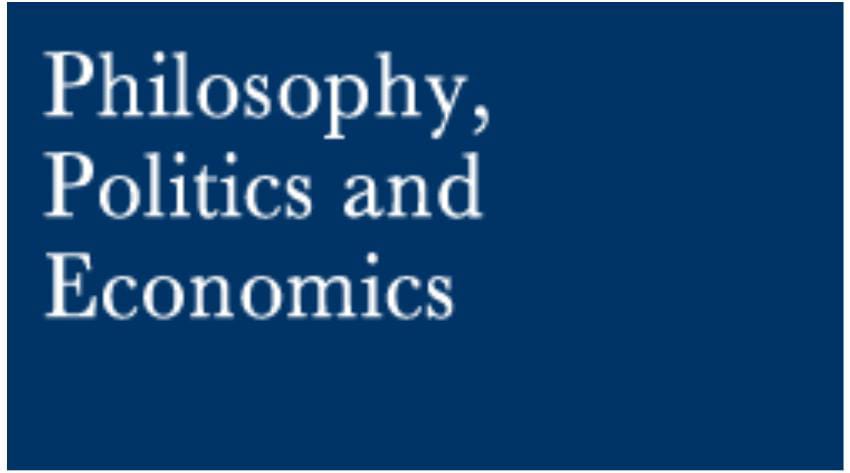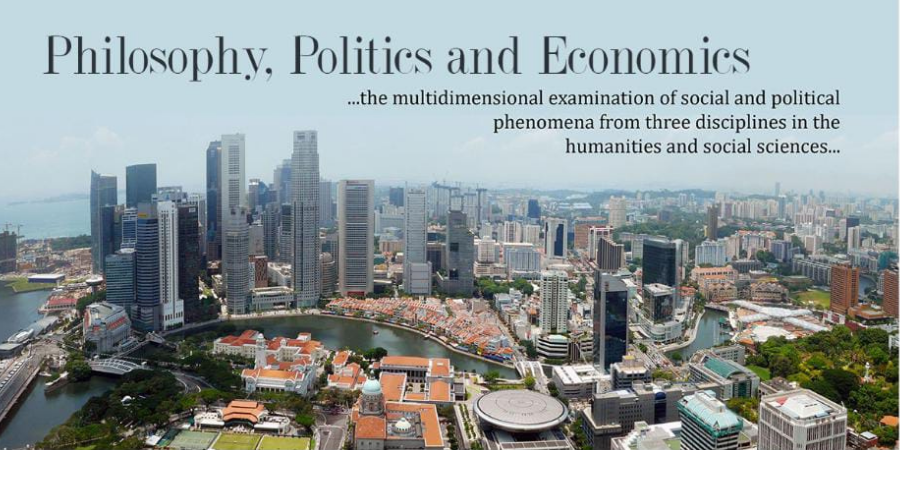Have you ever wondered how political theory, economic principles, and philosophy interact? Are you interested in delving into these many professions to tackle some of the trickiest problems and mysteries in the world?
In that case, pursuing a degree in Philosophy, Politics, and Economics (PPE) could be the ideal path for you. This engaging curriculum fosters a comprehensive grasp of society and prepares you to critically interact with societal issues from a variety of angles.
Three important disciplines of knowledge are studied together in the multidisciplinary university course Philosophy, Politics, and Economics (PPE): philosophy, politics, and economics. Because it gives students the chance to develop a comprehensive grasp of the world and how many facets of society interact with one another, it is an engaging and pertinent option for them.

PPE equips students with the knowledge and abilities to assess and analyze political and economic systems by looking at its underlying principles and social ramifications. Additionally, it delves into philosophical inquiries like justice, morality, and the meaning of life, allowing pupils to exercise critical thinking and form their own opinions on these subjects.
PPE offers a unique and thorough view on the world by merging the study of these three different subjects, which is very helpful for students who want to comprehend the world more deeply.
When crafting a narrative for oneself: Show off your enthusiasm for the subject and your comprehension of it. Showcase how your job background, courses, and relevant life experiences have shaped your interest in and preparedness for the course.
Career Possibilities
A philosophy, politics, and economics (PPE) degree opens up a lot of professional options. Graduates have access to a wide range of careers in the nonprofit, public, and commercial sectors.
Public Sector: Graduates have a wide range of career options in the public sector, including government relations specialist, policy analyst, government affairs specialist, and public relations specialist. They could also go for careers as foreign service officers, civil servants, or diplomats in the government.
Private Sector: Graduates can work as market researchers, financial analysts, business analysts, management consultants, and in a range of other private sector positions. They could also go for careers as business strategists, corporate lawyers, or corporate finance analysts.
Nonprofit Sector: Graduates can work as grant writers, program managers, research analysts, and other nonprofit-related positions. They could also seek careers as philanthropy consultants or managers in the nonprofit industry.
Industries: Graduates can work in a range of sectors-specific positions, including technology, energy, and healthcare analysis. They could also go after careers as risk analysts, investment bankers, or financial advisors in the banking and finance industry.
Sectors: Graduates can work in a range of sector-specific positions, including social media, political, and economic analysis.

Requirements for Entry into the UK
A minimum of two A-levels in appropriate disciplines, such as Economics, Politics, History, or Philosophy, is usually required for admission to a UK university’s Philosophy, Politics, and Economics (PPE) program. Universities may occasionally recognize credentials from both BTEC and A-level programs in related fields.
Furthermore, candidates often need to have earned at least a C in their A-level or BTEC coursework. Additionally, some colleges could demand that applicants get at least a BTEC or A-level grade B.
Additionally, applicants might need to have earned at least five GCSEs at a grade of C or above, including English and math.
PPE courses often have entrance criteria that are comparable to those of other courses in the same field. Since PPE courses tend to be more intellectually demanding than other courses, certain universities could have stricter admissions standards.
Potential Earnings For PPEs In The UK
The typical salary for a person with a Philosophy, Politics, and Economics (PPE) degree varies based on the particular position held and the experience level of the worker. Graduates in PPE are often in great demand and may anticipate earning attractive salaries.
The UK Office for National Statistics reports that in 2018, graduates with a PPE degree made, on average, £31,000. This is somewhat more than the £30,000 median wage for all UK grads.
Regarding employment patterns, PPE graduates should continue to be in high demand in the foreseeable future. This is because PPE graduates are qualified for a variety of jobs in the public and commercial sectors, including as law, business, finance, and policymaking. Furthermore, a PPE degree confers great value on the information and abilities that one might acquire in the workplace.
Comparable UK Courses
Politics, Philosophy and Economics (PPE), Politics and International Relations (PIR), and Economics and Politics (E&P) are other university courses that are associated with Philosophy, Politics, and Economics (PPE).
The concentration on the three disciplines is one of the main distinctions between these courses. PIR concentrates on the political dimensions of international relations, whereas PPE personal statement emphasizes the interdisciplinary approach of the three topics. E&P is more concerned with the political economy. Furthermore, PIR is more qualitative in character, whereas PPE and E&P both place a significant focus on quantitative analysis.
Curriculum in the UK
An interdisciplinary degree program that integrates the study of philosophy, politics, and economics is called Philosophy, Politics, and Economics (PPE). Its goal is to provide students with a comprehensive grasp of the interactions between these three fields of study and how to use them to solve issues in the real world.
Among the main subjects and modules taught in the course are:
- Philosophy: The nature of reality, the nature of knowledge, theories of ethics, and the philosophy of mind are all covered in this module.
- Politics: Public policy, political systems, international relations, and political economics are all covered in this curriculum.
- Economics: Micro, macro, international, and public finance are some of the subjects covered in this module.
Students may have the chance to obtain real-world experience in addition to the academic modules through field excursions, internships, and other events. Through these exercises, students may apply their knowledge in a practical situation and get a greater grasp of the subjects they are learning.
Alumni Association
Prominent alums of the Philosophy, Politics, and Economics (PPE) program including British Prime Minister Boris Johnson and previous UK Prime Minister David Cameron. These two former students have significantly influenced UK politics. While David Cameron was the impetus behind the UK’s austerity policies, Boris Johnson has played a significant role in the Brexit discussions.
For PPE graduates, the University of Oxford provides a variety of alumni activities and networking opportunities. One of these is the Oxford PPE Alumni Network, which gives alums the ability to keep informed about the most recent advancements in the area, network with other PPE grads, and exchange experiences.
Regular activities organized by the network include the Oxford PPE Alumni Networking Dinner and the Oxford PPE Alumni Conference. Alumni can network and talk about their experiences and career prospects with other PPE grads at these events.



